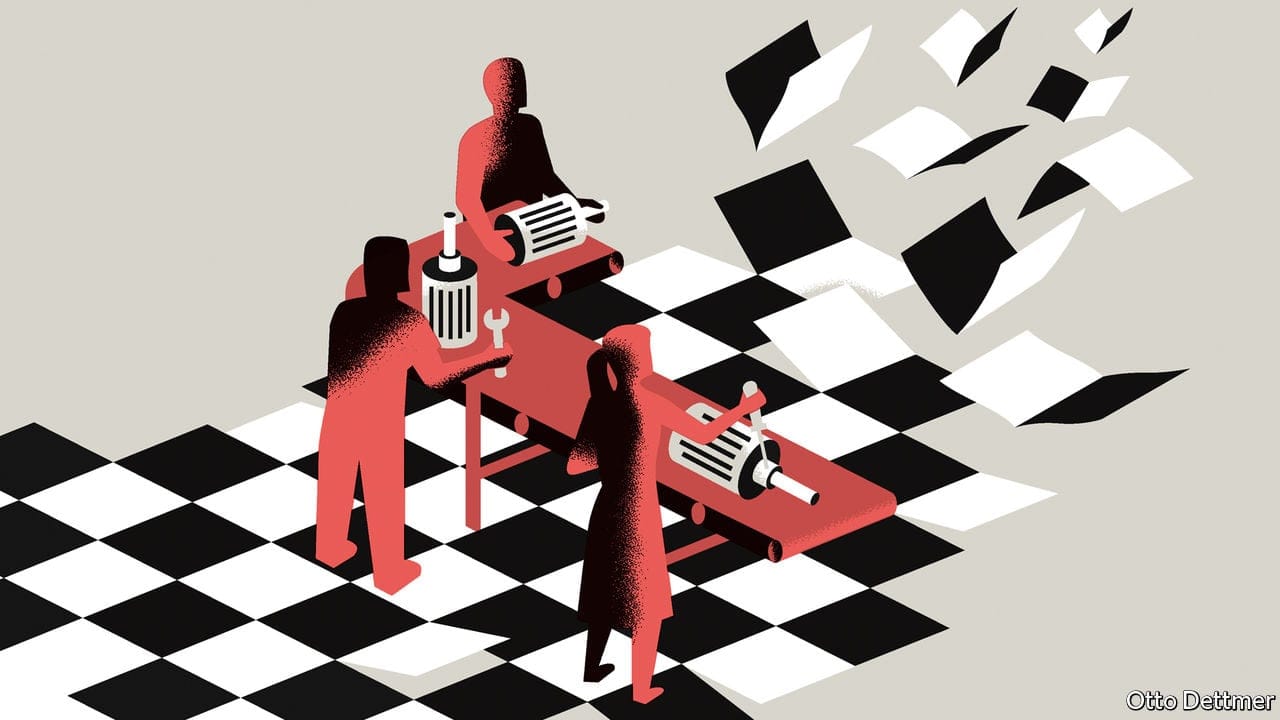Who bears the burden of a corporate tax?
Though aimed at shareholders, some of the costs fall on workers

JOE BIDEN wants to rebuild America, and he reckons that American firms can help foot the bill. Central to the president’s grand infrastructure-investment push is a plan to raise the tax rate on corporate income from 21% to 28% (though he has hinted he may settle for less). Although the administration pitches its tax proposals as a way to redress the problem that “those at the top are not doing their part”, opponents warn that corporate-tax rises do not simply fall on wealthy shareholders, but also shrink the pay packets of the working people the president claims to champion. In fact, workers often do bear some of the burden of increases in corporate taxes—though understanding just how much is a question that continues to vex economists. Nonetheless, the details of Mr Biden’s tax plans suggest that they may prove more worker-friendly than the usual effort to squeeze juice from Apple.
This article appeared in the Finance & economics section of the print edition under the headline “When the Inc runs”
Finance & economics May 15th 2021
More from Finance & economics

Can anything spark Europe’s economy back to life?
Mario Draghi, the continent’s unofficial chief technocrat, has a plan

Has social media broken the stockmarket?
That is the contention of Cliff Asness, one of the great quant investors

American office delinquencies are shooting up
How worried should investors be?
China is suffering from a crisis of confidence
Can anything perk up its economy?
America has a huge deficit. Which candidate would make it worse?
Enough policies have been proposed to make a call
Why Oasis fans should welcome price-gouging
There are worse things in life than paying a fair price
